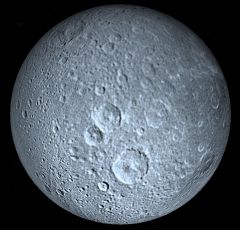90482 Orcus
Jump to navigation
Jump to search
90482 Orcus (2004 DW) is orbiting in the Kuiper belt and it has one moon Vanth. It was discovered on 17 February 2004. Later, precovery images were found as far back as November 1951.
The orbit of Orcus is locked in a 2:3 resonance with Neptune like that of 134340 Pluto.
90482 Orcus in Orbiter
Orcus was introduced to Orbiter with the release of Orcus.zip in July 2005.
| Add-on | Source | Version | Author | Type | Release Date | Compatibility | Wiki article |
|---|---|---|---|---|---|---|---|
| Kuiper Objects Pack | O-F Resources | 2006-08-10 | markl316 | Scenery | 11 August 2006 | ||
| Orcus | O-F Resources | 2005-07-29 | DonT155 | Scenery | 30 July 2005 | ||
See also
Gallery
Orcus and Vanth imaged by Hubble in October 2006
from Wikimedia Commons
| edit The Solar System | |
|---|---|
| Central star |
Sun (Sol) |
| Planets |
Mercury - Venus - Earth - Mars - Jupiter - Saturn - Uranus - Neptune |
| Natural satellites |
Moon - Phobos - Deimos - Io - Europa - Ganymede - Titan - more... |
| Add-ons |
Planets - Dwarf Planets - Small objects - Natural satellites - Alternative star systems |




